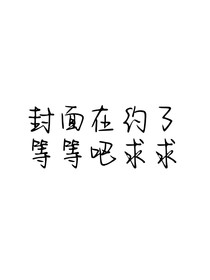зӣҙи§үдёҺжҪңж„ҸиҜҶпјҲдәҢпјү
еңЁ15еӨ©зҡ„ж—¶й—ҙйҮҢпјҢжҲ‘еҠӘеҠӣиҜҒжҳҺдёҚеҸҜиғҪжңүд»»дҪ•зұ»дјјдәҺжҲ‘еҗҺжқҘз§°д№Ӣдёә Fuchsian еҮҪж•°зҡ„еҮҪж•°гҖӮйӮЈж—¶жҲ‘еҫҲж— зҹҘпјӣжҜҸеӨ©жҲ‘еқҗеңЁе·ҘдҪңжЎҢеүҚпјҢеҫ…дёҠдёҖдёӨдёӘе°Ҹж—¶пјҢе°қиҜ•еҗ„з§Қз»„еҗҲпјҢдҪҶйғҪжІЎжңүз»“жһңгҖӮдёҖеӨ©жҷҡдёҠпјҢдёҺжҲ‘зҡ„е№іж—¶д№ жғҜзӣёеҸҚпјҢжҲ‘е–қдәҶй»‘е’–е•ЎпјҢиҝҷи®©жҲ‘ж— жі•е…ҘзқЎгҖӮжғіжі•жҲҗзҫӨж¶ҢзҺ°пјӣжҲ‘ж„ҹи§үеҲ°е®ғ们зӣёдә’зў°ж’һпјҢзӣҙеҲ°жҲҗеҜ№ең°зӣёдә’иҝһй”ҒпјҢеҸҜд»ҘиҜҙпјҢеҪўжҲҗдёҖдёӘзЁіе®ҡзҡ„з»„еҗҲгҖӮеҲ°з¬¬дәҢеӨ©ж—©дёҠпјҢжҲ‘е·Із»ҸзЎ®е®ҡдәҶдёҖзұ» Fuchsian еҮҪж•°зҡ„еӯҳеңЁжҖ§пјҢе®ғ们жқҘиҮӘи¶…еҮ дҪ•зә§ж•°пјӣжҲ‘еҸӘйңҖеҶҷеҮәз»“жһңпјҢиҝҷеҸӘиҠұдәҶеҮ дёӘе°Ҹж—¶гҖӮ
Then I wanted to represent these functions by the quotient of two series; this idea was perfectly conscious and deliberate, the analogy with elliptic functions guided me. I asked myself what properties these series must have if they existed, and I succeeded without difficulty in forming the series I have called theta-Fuchsian.
йҡҸеҗҺпјҢжҲ‘жғіз”ЁдёӨдёӘзә§ж•°зҡ„е•ҶжқҘиЎЁзӨәиҝҷдәӣеҮҪж•°пјӣиҝҷдёӘжғіжі•жҳҜе®Ңе…Ёжңүж„ҸиҜҶпјҢдё”ж·ұжҖқзҶҹиҷ‘зҡ„пјҢдёҺжӨӯеңҶеҮҪж•°зҡ„зұ»жҜ”жҢҮеҜјзқҖжҲ‘гҖӮжҲ‘й—®иҮӘе·ұпјҢеҰӮжһңиҝҷдәӣзә§ж•°еӯҳеңЁпјҢе®ғ们дёҖе®ҡе…·жңүд»Җд№ҲжҖ§иҙЁпјҢжҲ‘жҜ«дёҚиҙ№еҠӣең°жҲҗеҠҹжһ„йҖ еҮәдәҶжҲ‘з§°д№Ӣдёә theta-Fuchsian зҡ„зә§ж•°гҖӮ
Just at this time I left Caen, where I was then living, to go on a geologic excursion under the auspices of the school of mines. The changes of travel made me forget my mathematical work. Having reached Coutances, we entered an omnibus to go some place or other. At the moment when I put my foot on the step the idea came to me, without anything in my former thoughts seeming to have paved the way for it, that the transformations I had used to define the Fuchsian functions were identical with those of non-Euclidean geometry. I did not verify the idea; I should not have had time, as, upon taking my seat in the omnibus, I went on with a conversation already commenced, but I felt a perfect certainty. On my return to Caen, for conscience's sake I verified the result at my leisure.
е°ұеңЁиҝҷдёӘж—¶еҖҷпјҢжҲ‘зҰ»ејҖдәҶжҲ‘еҪ“ж—¶еұ…дҪҸзҡ„еҚЎжҳӮпјҢеңЁзҹҝеұұеӯҰж Ўзҡ„иөһеҠ©дёӢиҝӣиЎҢдёҖж¬Ўең°иҙЁиҖғеҜҹгҖӮж—…иЎҢзҡ„еҸҳеҢ–дҪҝжҲ‘еҝҳи®°дәҶж•°еӯҰе·ҘдҪңгҖӮеҲ°дәҶ科еӯ”иҢЁпјҢжҲ‘们дҫҝеқҗдёҠе…¬е…ұ马иҪҰпјҢеҲ°д»Җд№Ҳең°ж–№еҺ»гҖӮе°ұеңЁжҲ‘иёҸдёҠиҝҷдёҖжӯҘзҡ„ж—¶еҖҷпјҢжҲ‘зӘҒ然жғіеҲ°пјҢжҲ‘з”ЁжқҘе®ҡд№үеҜҢе…Ӣж–ҜеҮҪж•°зҡ„еҸҳжҚўдёҺйӮЈдәӣйқһ欧еҮ йҮҢеҫ—еҮ дҪ•зҡ„еҸҳжҚўжҳҜзӣёеҗҢзҡ„пјҢе°Ҫз®ЎеңЁжӯӨд№ӢеүҚпјҢжҲ‘дјјд№ҺжІЎжңүд»»дҪ•жғіжі•жқҘдёәиҝҷдёӘжғіжі•й“әе№ійҒ“и·ҜгҖӮжҲ‘жІЎжңүиҜҒе®һиҝҷдёӘжғіжі•пјҢеҪ“ж—¶жҲ‘жІЎжңүж—¶й—ҙпјҢеӣ дёәжҲ‘дёҖеңЁе…¬е…ұ马иҪҰдёҠеқҗдёӢпјҢе°ұ继з»ӯзқҖе·Із»ҸејҖе§Ӣзҡ„и°ҲиҜқпјҢдҪҶжҲ‘и§үеҫ—иҝҷжҳҜе®Ңе…ЁиӮҜе®ҡзҡ„гҖӮжҲ‘еӣһеҲ°еҚЎжҳӮеҗҺпјҢи·ҹйҡҸеҶ…еҝғзҡ„жғіжі•пјҢеңЁй—ІжҡҮж—¶еҲ»д»Һе®№дёҚиҝ«ең°йӘҢиҜҒдәҶдёҖдёӢз»“жһңгҖӮ
Then I turned my attention to the study of some arithmetical questions apparently without much success and without a suspicion of any connection with my preceding researches. Disgusted with my failure, I went to spend a few days at the seaside, and thought of something else. One morning, walking on the bluff, the idea came to me, with just the same characteristics of brevity, suddenness and immediate certainty that the arithmetic transformations of indeterminate ternary quadratic forms were identical with those of non-Euclidean geometry.
然еҗҺпјҢжҲ‘жҠҠжіЁж„ҸеҠӣиҪ¬еҗ‘дәҶдёҖдәӣз®—жңҜй—®йўҳпјҢжҳҫ然没жңүеӨҡеӨ§жҲҗеҠҹпјҢд№ҹжІЎжңүжғіеҲ°иҝҷдёҺжҲ‘д№ӢеүҚзҡ„з ”з©¶жңүд»»дҪ•иҒ”зі»гҖӮжҲ‘еҜ№жҲ‘зҡ„еӨұиҙҘж„ҹеҲ°еҺҢжҒ¶пјҢеҺ»жө·иҫ№е‘ҶдәҶеҮ еӨ©пјҢжғідәҶдәӣеҲ«зҡ„дәӢжғ…гҖӮдёҖеӨ©ж—©дёҠпјҢжҲ‘иө°еңЁжӮ¬еҙ–дёҠпјҢзӘҒ然жңүдәҶдёҖдёӘжғіжі•пјҢе®ғе’Ңйқһ欧еҮ дҪ•дёҖж ·пјҢе…·жңүз®ҖжҙҒгҖҒзӘҒ然жҖ§е’Ңз«ӢеҚіеҸҜзЎ®е®ҡзҡ„зү№зӮ№пјҢе®ғжҳҜдёҖдёӘдёҚе®ҡдёүе…ғдәҢж¬ЎеһӢзҡ„з®—жңҜеҸҳжҚўгҖӮ
Returned to Caen, I meditated on this result and deduced the consequences. The example of quadratic forms showed me that there were Fuchsian groups other than those corresponding to the hypergeometric series; I saw that I could apply to them the theory of theta-Fuchsian series and that consequently there existed Fuchsian functions other than those from the hypergeometric series, the ones I then knew. Naturally I set myself to form all these functions. I made a systematic attack upon them and carried all the outworks, one after another. There was one, however, that still held out, whose fall would involve that of the whole place. But all my efforts only served at first the better to show me the difficulty, which indeed was something. All this work was perfectly conscious.
еӣһеҲ°еҚЎжҳӮеҗҺпјҢжҲ‘еҜ№иҝҷдёӘз»“жһңиҝӣиЎҢдәҶжҖқиҖғпјҢ并жҺЁеҜјеҮәдәҶз»“жһңгҖӮдәҢж¬ЎеһӢзҡ„дҫӢеӯҗе‘ҠиҜүжҲ‘пјҢйҷӨдәҶи¶…еҮ дҪ•зә§ж•°еҜ№еә”зҡ„зҫӨд№ӢеӨ–пјҢиҝҳеӯҳеңЁ Fuchsian зҫӨпјӣжҲ‘еҸ‘зҺ°жҲ‘еҸҜд»Ҙе°Ҷ theta-Fuchsian зә§ж•°зҡ„зҗҶи®әеә”з”ЁдәҺе®ғ们пјҢ并且еӣ жӯӨпјҢйҷӨдәҶжқҘиҮӘи¶…еҮ дҪ•зә§ж•°зҡ„еҮҪж•°д№ӢеӨ–пјҢиҝҳеӯҳеңЁжҲ‘еҪ“ж—¶зҹҘйҒ“зҡ„ Fuchsian еҮҪж•°гҖӮеҫҲиҮӘ然ең°пјҢжҲ‘жһ„йҖ еҮәдәҶжүҖжңүзҡ„иҝҷдәӣеҮҪж•°гҖӮжҲ‘еҜ№д»–们иҝӣиЎҢдәҶзі»з»ҹзҡ„ж”»з ҙ并дёҖдёӘжҺҘдёҖдёӘең°жүҝжӢ…дәҶжүҖжңүзҡ„е·ҘдҪңгҖӮ然иҖҢпјҢиҝҳеӯҳеңЁзқҖдёҖдёӘй—®йўҳпјҢи§ЈеҶідёҚдәҶе®ғдјҡдҪҝжүҖжңүеҠӘеҠӣзҷҪиҙ№гҖӮдҪҶжҳҜпјҢжҲ‘жүҖжңүзҡ„йӮЈдәӣд»…еңЁдёҖејҖе§Ӣж—¶иө·дҪңз”Ёзҡ„еҠӘеҠӣпјҢдҪҝжҲ‘жӣҙжё…жҘҡең°зңӢеҲ°дәҶеӣ°йҡҫпјҢиҝҷзҡ„зЎ®жҳҜ件дәҶдёҚиө·зҡ„дәӢгҖӮжүҖжңүиҝҷдәӣе·ҘдҪңйғҪжҳҜеңЁе®Ңе…Ёжңүж„ҸиҜҶзҡ„жғ…еҶөдёӢиҝӣиЎҢзҡ„гҖӮ
Thereupon I left for Mont-ValГ©rien, where I was to go through my military service; so I was very differently occupied. One day, going along the street, the solution of the difficulty which had stopped me suddenly appeared to me. I did not try to go deep into it immediately, and only after my service did I again take up the question. I had all the elements and had only to arrange them and put them together. So I wrote out my final memoir at a single stroke and without difficulty.
дәҺжҳҜжҲ‘еҺ»дәҶMont-ValГ©rienпјҢжҲ‘иҰҒеңЁйӮЈйҮҢжңҚе®Ңе…өеҪ№пјҢжүҖд»ҘжҲ‘зҡ„е·ҘдҪңе®Ңе…ЁдёҚеҗҢгҖӮдёҖеӨ©пјҢжҲ‘еңЁиЎ—дёҠиө°зқҖпјҢзӘҒ然жғіеҲ°дәҶи§ЈеҶіиҝҷдёӘдҪҝжҲ‘еҒңдёӢжқҘзҡ„йҡҫйўҳзҡ„еҠһжі•гҖӮжҲ‘并没жңүиҜ•еӣҫз«ӢеҚіж·ұе…Ҙз ”з©¶пјҢеңЁжҲ‘жңҚеҪ№д№ӢеҗҺпјҢжҲ‘жүҚйҮҚжӢҫиҝҷдёӘй—®йўҳгҖӮжҲ‘жңүдәҶжүҖжңүзҡ„е…ғзҙ пјҢеҸӘйңҖиҰҒжҠҠе®ғ们жҺ’еҲ—иө·жқҘпјҢ然еҗҺжҠҠе®ғ们ж”ҫеңЁдёҖиө·гҖӮдәҺжҳҜпјҢжҲ‘жҜ«дёҚиҙ№еҠӣең°дёҖ笔дёҖеҲ’ең°еҶҷеҮәдәҶжңҖз»Ҳзҡ„еӣһеҝҶеҪ•гҖӮ
I shall limit myself to this single example; it is useless to multiply them...
жҲ‘е°Ҷд»…йҷҗдәҺи®Ёи®әиҝҷдёӘдҫӢеӯҗпјҢдёҫеҶҚеӨҡзҡ„дҫӢеӯҗжҳҜж— з”Ёзҡ„......
Most striking at first is this appearance of sudden illumination, a manifest sign of long, unconscious prior work. The role of this unconscious work in mathematical invention appears to me incontestable, and traces of it would be found in other cases where it is less evident. Often when one works at a hard question, nothing good is accomplished at the first attack. Then one takes a rest, longer or shorter, and sits down anew to the work. During the first half-hour, as before, nothing is found, and then all of a sudden the decisive idea presents itself to the mind...
еңЁиҝҷдёӘдҫӢеӯҗдёӯпјҢжңҖеј•дәәжіЁзӣ®зҡ„жҳҜиҝҷз§ҚзӘҒ然ејҸеҗҜеҸ‘зҡ„еҮәзҺ°пјҢиҝҷжҳҜй•ҝжңҹзҡ„гҖҒжҪңж„ҸиҜҶзҡ„еүҚзҪ®е·ҘдҪңзҡ„жҳҺжҳҫиҝ№иұЎгҖӮеңЁжҲ‘зңӢжқҘпјҢиҝҷз§ҚжҪңж„ҸиҜҶзҡ„е·ҘдҪңеңЁж•°еӯҰеҲӣйҖ дёӯзҡ„дҪңз”ЁжҳҜж— еҸҜдәүиҫ©зҡ„пјҢеңЁе…¶д»–дёҚйӮЈд№ҲжҳҺжҳҫзҡ„жғ…еҶөдёӢпјҢд№ҹдјҡеҸ‘зҺ°е®ғзҡ„з—•иҝ№гҖӮеҪ“дёҖдёӘдәәеҠӘеҠӣи§ЈеҶідёҖдёӘйҡҫйўҳж—¶пјҢеҫҖеҫҖдёҖејҖе§Ӣе°ұжІЎжңүд»Җд№ҲеҘҪзҡ„з»“жһңгҖӮ然еҗҺжҲ–й•ҝжҲ–зҹӯең°дј‘жҒҜдёҖдјҡе„ҝпјҢеҶҚеқҗдёӢжқҘйҮҚж–°ејҖе§Ӣе·ҘдҪңгҖӮеңЁжңҖеҲқзҡ„еҚҠе°Ҹж—¶йҮҢпјҢе°ұеғҸд»ҘеүҚдёҖж ·д»Җд№Ҳд№ҹжүҫдёҚеҲ°пјҢ然еҗҺзӘҒ然й—ҙпјҢдёҖдёӘеҶіе®ҡжҖ§зҡ„жғіжі•еҮәзҺ°еңЁи„‘жө·йҮҢвҖҰвҖҰ
There is another remark to be made about the conditions of this unconscious work; it is possible, and of a certainty it is only fruitful, if it is on the one hand preceded and on the other hand followed by a period of conscious work. These sudden inspirations (and the examples already cited prove this) never happen except after some days of voluntary effort which has appeared absolutely fruitless and whence nothing good seems to have come, where the way taken seems totally astray. These efforts then have not been as sterile as one thinks; they have set agoing the unconscious machine and without them it would not have moved and would have produced nothing...
е…ідәҺиҝҷз§ҚжҪңж„ҸиҜҶе·ҘдҪңзҡ„жқЎд»¶пјҢиҝҳжңүдёҖзӮ№еҖјеҫ—жіЁж„Ҹзҡ„жҳҜпјҡжҪңж„ҸиҜҶе·ҘдҪңжңүеҸҜиғҪеҮәзҺ°еңЁжңүж„ҸиҜҶе·ҘдҪңд№ӢеүҚпјҢд№ҹжңүеҸҜиғҪеҮәзҺ°еңЁдёҖж®өжңүж„ҸиҜҶзҡ„е·ҘдҪңд№ӢеҗҺгҖӮеҜ№дәҺжҲ‘们иҰҒи§ЈеҶізҡ„й—®йўҳпјҢиҝҷж ·зҡ„жҪңж„ҸиҜҶе·ҘдҪңиӮҜе®ҡжҳҜеҜҢжңүжҲҗж•Ҳзҡ„гҖӮеҰӮжһңжІЎжңүз»ҸиҝҮеҮ еӨ©иҮӘеҸ‘зҡ„еҠӘеҠӣпјҢиҝҷдәӣзӘҒ然зҡ„зҒөж„ҹ(еүҚйқўжҸҗеҲ°зҡ„дҫӢеӯҗиҜҒжҳҺдәҶиҝҷдёҖзӮ№)ж°ёиҝңдёҚдјҡеҮәзҺ°пјҢиҖҢд№ӢеүҚжңүж„ҸиҜҶе·ҘдҪңдёӯзҡ„еҠӘеҠӣдјјд№ҺжҜ«ж— з»“жһңпјҢдјјд№ҺжІЎжңүд»»дҪ•еҘҪеӨ„пјҢжүҖиө°зҡ„и·Ҝдјјд№Һе®Ңе…Ёй”ҷиҜҜгҖӮдҪҶиҝҷдәӣеҠӘеҠӣд№ҹ并йқһеғҸдәә们жғіиұЎзҡ„йӮЈж ·жҜ«ж— з»“жһңпјӣе®ғ们еҗҜеҠЁдәҶиҝҷеҸ°ж— ж„ҸиҜҶзҡ„жңәеҷЁпјҢжІЎжңүе®ғ们пјҲжҢҮжңүж„ҸиҜҶзҡ„е·ҘдҪңпјүпјҢжңәеҷЁе°ұдёҚдјҡ移еҠЁпјҢд№ҹдёҚдјҡдә§з”ҹд»»дҪ•дёңиҘҝвҖҰвҖҰ
Such are the realities; now for the thoughts they force upon us. The unconscious, or, as we say, the subliminal self plays an important role in mathematical creation; this follows from what we have said. But usually the subliminal self is considered as purely automatic. Now we have seen that mathematical work is not simply mechanical, that it could not be done by a machine, however perfect. It is not merely a question of applying rules, of making the most combinations possible according to certain fixed laws. The combinations so obtained would be exceedingly numerous, useless and cumbersome. The true work of the inventor consists in choosing among these combinations so as to eliminate the useless ones or rather to avoid the trouble of making them, and the rules which must guide this choice are extremely fine and delicate. It is almost impossible to state them precisely; they are felt rather than formulated. Under these conditions, how imagine a sieve capable of applying them mechanically?
зӣёе…іжҺЁиҚҗ
 иҝһиҪҪдёӯ
иҝһиҪҪдёӯ
зјӘж–Ҝд№җеӣӯ
 иҝһиҪҪдёӯ
иҝһиҪҪдёӯ
йҷ¶иҖ…зўҺж–ҮеҪ•
 иҝһиҪҪдёӯ
иҝһиҪҪдёӯ
ејӮе…Ҫ笔记
 иҝһиҪҪдёӯ
иҝһиҪҪдёӯ
д№…жҹүзҘһиҜҶиҝ°дё–й—ҙзҷҫжҖҒ
 иҝһиҪҪдёӯ
иҝһиҪҪдёӯ
зҝ”йң–пјҡж—§зҲұжӢҫиө·
 иҝһиҪҪдёӯ
иҝһиҪҪдёӯ